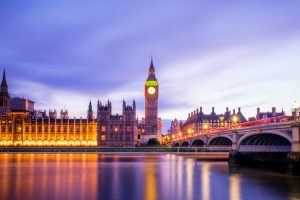The new Department for Energy Security and Net Zero (DESNZ) Ministerial team faced its first oral questions last week.[1] Key themes included energy bills and fuel poverty, as well as the impact of the clean energy transition on industry and jobs – Brevia Energy explores these below.
Energy Bills
Rising household energy costs were a key issue raised by several MPs from the across the Chamber. The new Minister for Energy Consumers, Martin McCluskey MP, outlined the Government’s priorities to reduce energy bills and address fuel poverty, including the forthcoming Warm Homes Plan. McCluskey also faced scrutiny over the recent National Audit Office report, which identified pitfalls in the rollout of the Energy Obligation Scheme.[2] He emphasised that consumer protection would be a central focus of the Warm Homes Plan, despite this being delayed until after the Budget, as reported by several sources earlier this week.[3]
Impact on Industry
MPs from the Conservative benches and Reform’s Richard Tice MP pressed ministers on the impact of current climate and decarbonisation policies on jobs, particularly in the oil sector, as well as raising concerns around the erosion of the UK’s ‘industrial base’ faced with rising energy bills. Shadow Ministers called on DESNZ Ministers to remove green levies from energy bills and bring an end to the windfall tax. The Opposition argued that putting ‘cheap energy first’ would help consumers afford to switch to clean alternatives in the long run. However, new Minister for Industry and Economic Growth Chris McDonald MP emphasised that the Government’s Clean Power Mission aims to ensure that businesses benefit from the transition and stated that the Government would set out support for energy-intensive sectors such as manufacturing, ceramics, and brewing. McDonald also highlighted the Clean Energy Jobs Plan, designed to create jobs and strengthen investor confidence as the UK transitions to a low-carbon economy.
Climate Consensus
The ongoing lack of consensus on how to respond to the climate crisis also featured prominently in the Oral Questions session. Opposition MPs argued that the Climate Change Act 2008 imposes undue financial pressure on households by contributing to rising energy costs. In contrast, Energy Secretary Ed Miliband MP stressed the strategic necessity of sustained climate action. He asserted that long-term energy affordability depends on investment in renewable energy and modern grid infrastructure. He further criticised the Opposition for withdrawing from the cross-party support that had once underpinned the Climate Change Act, suggesting this shift prioritised political optics over evidence-based policy. For DESNZ, this debate highlights an enduring challenge: persuading both Parliament and the public that the Government’s Clean Power Mission is not only a signal of environmental stewardship, but also fundamental to the nation’s long-term economic resilience.
Takeaways
The session underscored the political and policy challenges facing the new ministers at DESNZ as it seeks to balance climate ambition, industrial competitiveness, and energy affordability in an increasingly polarised political environment. Ministers signaled that further details are to come on how the Government will lower bills, secure investment, and support jobs across the energy transition. However, with the Warm Homes Plan further delayed, and still no details on the British Industrial Competitiveness Scheme, the Government is faced with a tight timeline.
Brevia Energy is a dedicated division of Brevia Consulting, and has a longstanding reputation for its expertise and experience in the Energy Sector.
To organise a discussion with Brevia Energy on how we can help you and your organisation, please get in touch via the link here. You can also contact the Brevia Energy Team on 020 7091 1650 or email contact@brevia.co.uk
[1] House of Commons Hansard, Oral Answers to Questions, Energy Security and Net Zero, 14 October 2025, Link.
[2] National Audit Office, Energy efficiency installations under the Energy Company Obligation, 14 October 2025, Link.
[3] The Times, Ed Miliband’s £13bn warm homes plan delayed after row over energy costs, 16 October 2025, Link.



